“I’ll teach my boys to be dangerous men/ To pick white flowers for all of their friends/To think of patience when they think of strength…/I will teach my boys to be dangerous men/In a world where danger is the norm/the dangerous thing is not to conform” (Lucas Jones)
As my girlfriends and I stood in front of the mirror doing each other’s mascara and blushes, our male friends waited around, hands in their pockets, deprived of a camaraderie that comes only from being women. Although most of that camaraderie among us girls are generated by trauma inflicted by men, I couldn’t help but feel sorry for those who have been so mercilessly conditioned to be stoic and cruel. masculinity
Thankfully, the new age visual art, especially narrative arts like cinema, web series, video games, and reels, (yes as part of Gen Z, I have to admit, there’s more to reels than sophisticated readers would like to admit) have become major harbingers of changing how men should be portrayed to society. masculinity masculinity
In fact, the snippet of a poem that this article starts with, I first came across in an Instagram reel in the account of the very talented Lucas Jones. masculinity
And after all, what is soft masculinity but a way to break the century-old burden of being “proper”?
We call them “men, written by women”, which is often the case. Then why do women write men who are soft, gentle with their emotions and others’, cry too often, and break fewer hearts? Is that what lovers have secretly wanted when for decades men assumed they had to be apathetic, brutal, emblems of traditional masculinity to be worthy of love?
Depictions of men as fathers, lovers, brothers, and friends in narrative visual art have seen a significant turn in the last decade, with movie men like Callum from Aftersun, Deepak in Masaan, or web series men like Connell in Normal People, Dexter of One Day (the Netflix original series), or even Bablu in Mirzapur. The 20th-century audience even has films like Close or Paddleton, narratives dedicated entirely towards changing the perspective on masculinity and love between men, platonic or romantic.
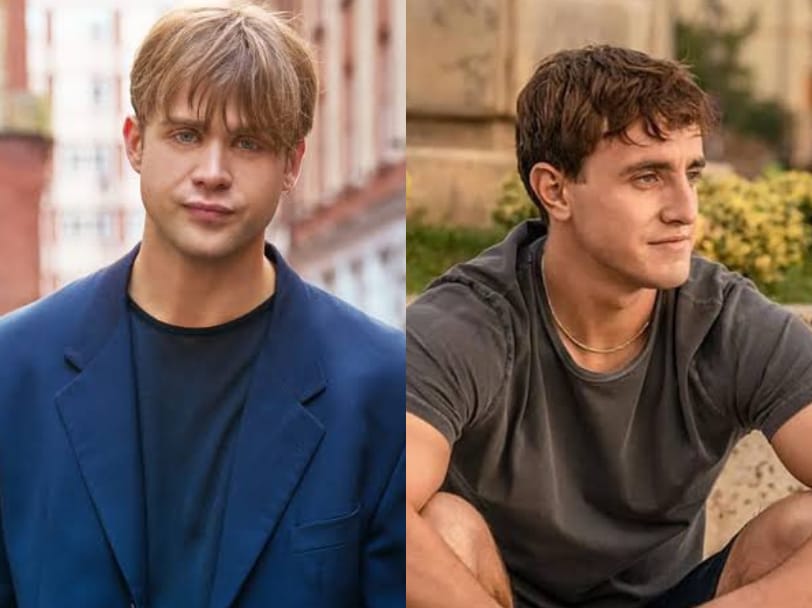
The evolution of women from the corseted Victorian age to the flappers of the Roaring Twenties and then today when sexual or romantic dynamics have become so flexible, we have somehow neglected to appreciate our fictional men becoming gentler and more nuanced. For the longest time, even in fiction, father-daughter relationships were defined by indifferent, distant fathers and psychologically scarred daughters who seek the love they lacked in lovers, men who fail time and again to become their saviours.
Generationally, women who have not had fatherly love have sought out partners who resemble their fathers not just physically but emotionally. In a way, that has forced our boys to grow up to be like most fathers, emotionally unavailable and unnecessarily crude.
Characters like Callum have not only changed expectations but healed generational traumas of men and women alike who know now that love from fathers can exist in an almost heartbreakingly soft template.
When Callum asks Sophie to the dance floor and proceeds to dance alone, embarrassing his daughter, our childhood needs, to have a father-daughter dance where we laugh at our hilarious dancing skills but hold each other close, are addressed so intimately that we can’t help holding tears back. “Did you have a good holiday then?” Callum asks, and we echo Sophie when she says, “The best”. A man who is failing to gather the will to live arranges for a holiday just so he can gently look at his daughter and smile while she enjoys her ice cream.
On a lighter note, we also have a father like Phil Dunphy who cries when his daughters seem too grown up to have their annual camping trip with their father. Callum and Phil, soft yet enduring, make us realize as a generation, what we need in our fathers to grow up to be kind people, kind men, and kind boys.
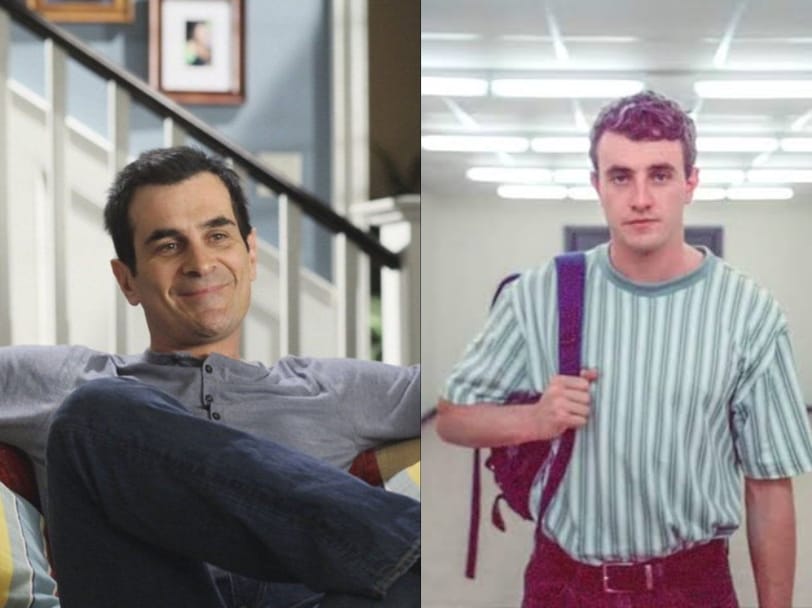
While we are on the subject of fun sitcom men, Jake Peralta of Brooklyn Nine-Nine deserves a little attention because I honestly cannot think of a man who encompasses soft masculinity in a less problematic or more fun way. In the episode titled “He said, She said” when he finished an entire documentary on feminism because he couldn’t sleep after getting to know the workplace sexual harassment women face, made me say “I love you”, before even Amy did.
Also Read: Women’s Writing in Adaptation: New Perspectives, New Beginnings
Not mentioning the Hot Priest in my streak of soft masculine men would be a great injustice to women who, like Fleabag, are trying to put back together their fragmented selves and need someone to love them as broken as they are. This generation of broken women and broken men found their salvation (a little religious pun there) in Andrew Scott as he said “It’ll pass” followed immediately by “I love you too”.
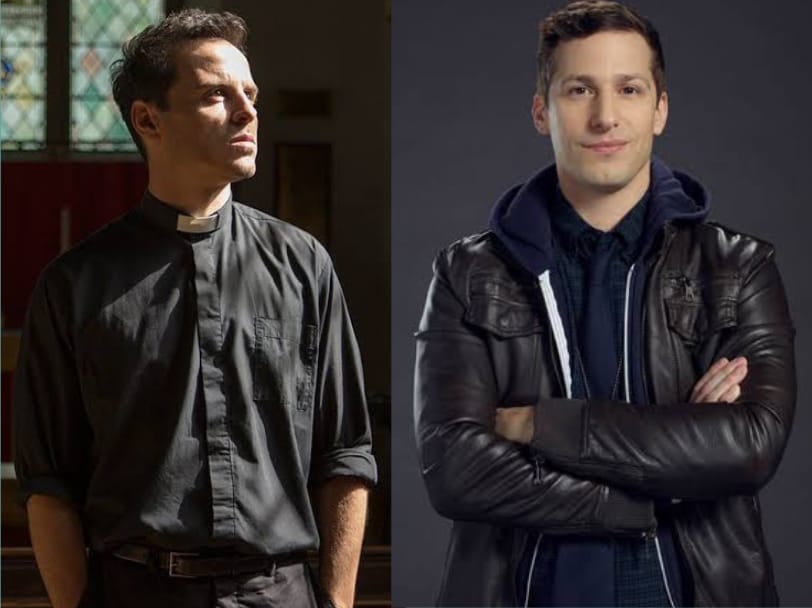
Chimamanda Ngozi Adichie writes, “We do a great disservice to boys in how we raise them…. Masculinity is a hard, small cage, and we put boys inside this cage.” Close, a masterpiece by Lukas Dhont explores this cage that takes away friendship, the most intimate kind of emotional relationship humankind has invented, from little Leo and Remi, ultimately driving Remi to suicide and scarring Leo for life. Their friendship is not defined in the film to be heterosexual or homosexual, because, like masculinity, it doesn’t need defining.
The point Dhont makes in the film is more about the fact that boys don’t need to act a certain way in a friendship.
They don’t need to be into hockey instead of painting, they can run through the fields of pink flowers, sleep in the same bed together, hold each other, and just be children.
As devastatingly beautiful as Close is, it also showcases how society has been raising men, and how unkind it has been to them.
This article has focused on Western art up until this point because it is true that the West has learned quicker to portray “unconventional” masculinity on screen. But we do have characters like Deepak in Masaan, whose love for the beloved whimpers like a bridge does, as the train passes over it. Lovers like Vicky Kaushal’s Deepak base their ambitions on the women they love, they love like there is no tomorrow. And when in fact, there is no tomorrow they can take solace in the fact that they gave as much love as possible, without caring that society might strip them of dignity, and refuse to let them into the men’s club.
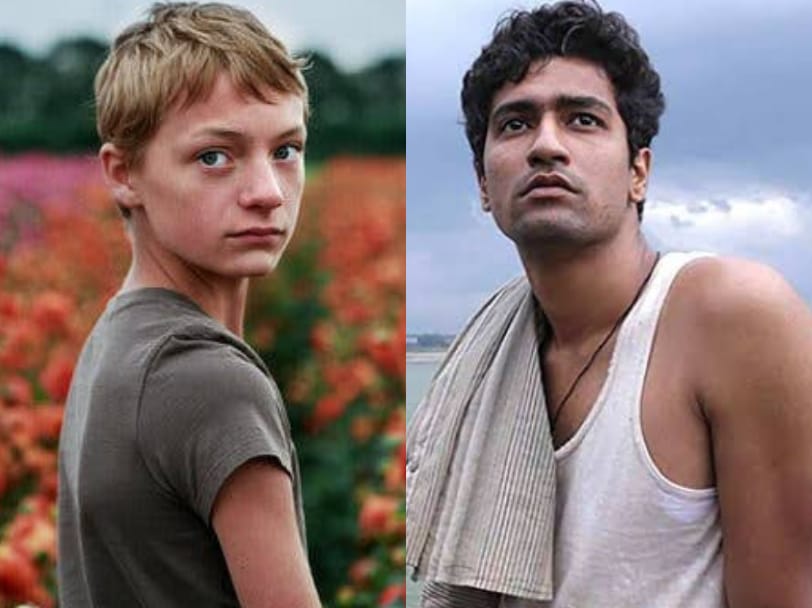
The men’s club which has been replete with gangster movies maybe for the first time saw a character like Bablu (Vikrant Massey) in Mirzapur who encompasses soft masculinity. Unlike Michael Corleone, Bablu doesn’t become the man to suit the gangster life and has to die– maybe a commentary on how we as a society still can’t accommodate men who are essentially lovers, without making them into the muscular, sadistic, unfeeling monsters.
In The Will to Change Bell Hooks probably gave us the ultimate insight into men’s relationship with lovers and themselves, as it has been portrayed in art –
We learn to love men more because they will not love us. If they dared to love us, in patriarchal culture they would cease to be real “men”.
Speaking of Vikrant Massey and real “men”, Shotu from A Death in The Gunj comes to mind. “You’re so pretty. Could be a girl,” remarks Kalki Koechlin’s character, confusing his soft demeanour with femininity. Shotu’s character is described repeatedly in the film as “sensitive” as if it’s a bad thing. Shotu neither fits into the heteronormative culture of masculinity nor is he able to take care of Tani properly, although he tries to do both. The confusion is so great that he sees no other way to exist but as a ghost. How many boys, it makes me wonder, exist as ghosts of themselves because we won’t just let them be.
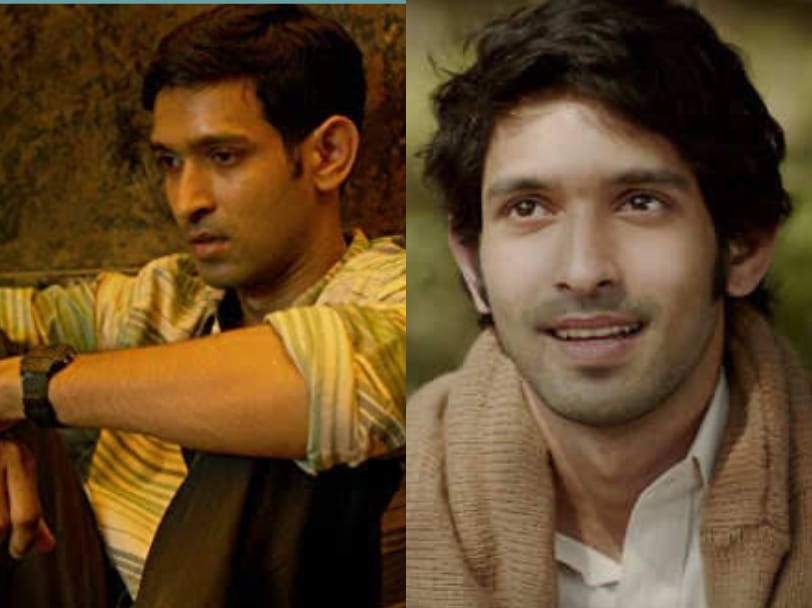
We often mistake softness as a substitute for either weakness or femininity, but soft masculinity is much more than that. Women have broken the boundaries of being fragile and helpless. But to do that, first they had to get confused and make other people confused. Identity as a concept will always be confusing because that is how it is supposed to be. Soft masculinity too is confusing, it struggles with being soft sometimes, with men forcing themselves to be rough against their nature. We are at the nascent stage of a new masculinity and real men are starting to understand why women prefer fictional men.
Image Courtesy: Pinterest
masculinity
Subarnarekha Chakraborty is currently pursuing a master's degree in comparative literature from Jadavpur University. She holds a bachelor's degree in the same. Her areas of interest are feminism in literature, Hispanic studies, studies of the Global South, Subaltern Studies, and documentary filmmaking. She also aspires to be a writer and a journalist specializing in human interest stories and stories about marginal people and practices in the Global South.





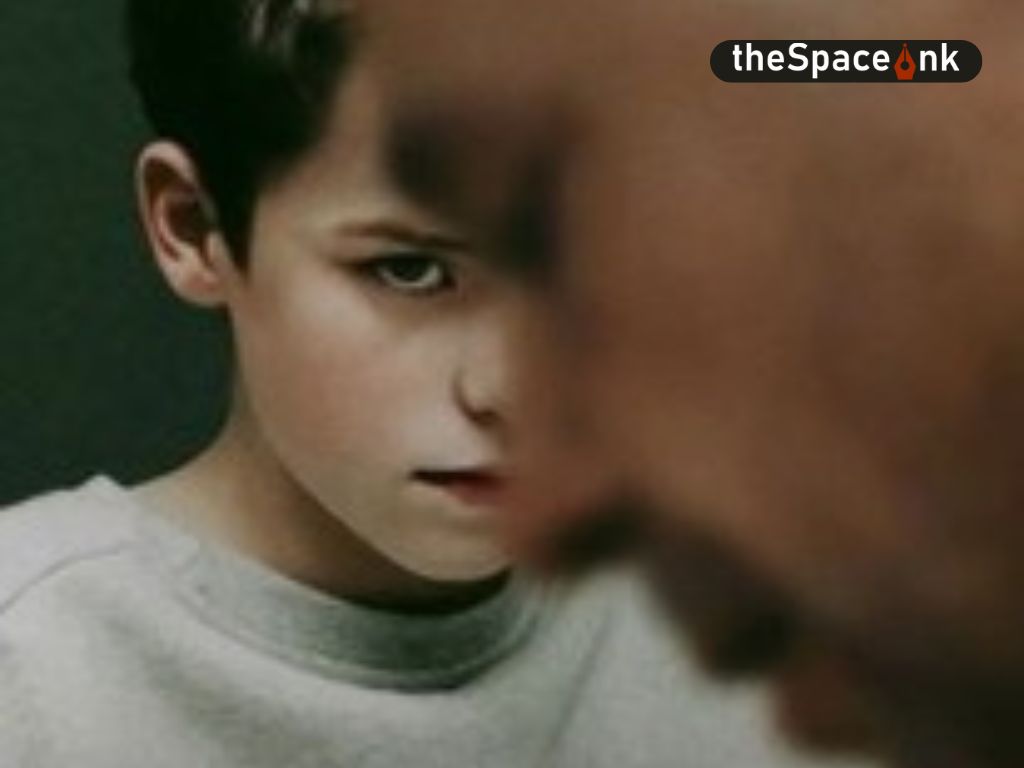



2 Responses
This was an informative read, I’ll definitely return for more.
Lovely read!